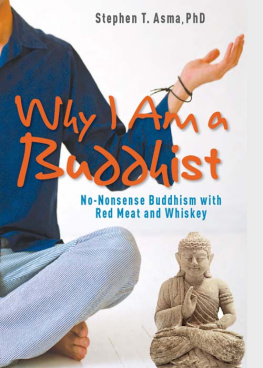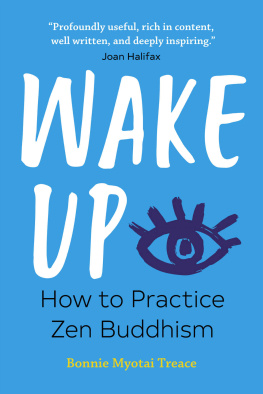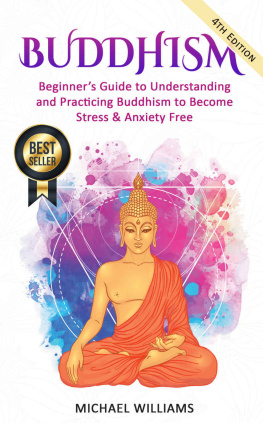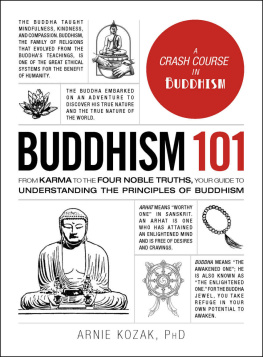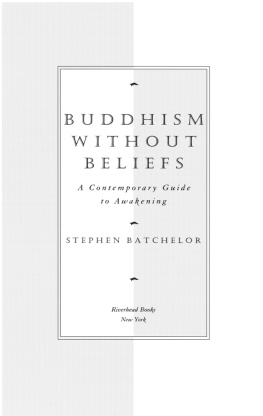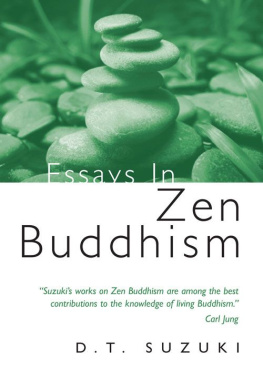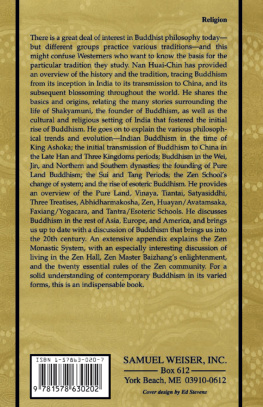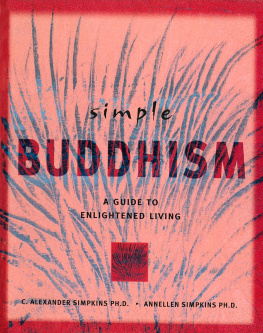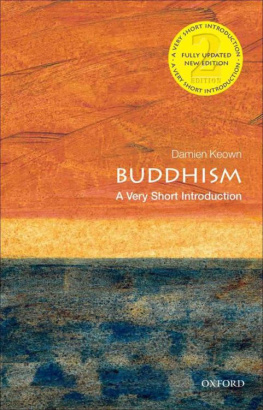Axmar - Buddhism: How To Practice Buddhism In Your Everyday Life
Here you can read online Axmar - Buddhism: How To Practice Buddhism In Your Everyday Life full text of the book (entire story) in english for free. Download pdf and epub, get meaning, cover and reviews about this ebook. year: 2016, genre: Religion. Description of the work, (preface) as well as reviews are available. Best literature library LitArk.com created for fans of good reading and offers a wide selection of genres:
Romance novel
Science fiction
Adventure
Detective
Science
History
Home and family
Prose
Art
Politics
Computer
Non-fiction
Religion
Business
Children
Humor
Choose a favorite category and find really read worthwhile books. Enjoy immersion in the world of imagination, feel the emotions of the characters or learn something new for yourself, make an fascinating discovery.
Buddhism: How To Practice Buddhism In Your Everyday Life: summary, description and annotation
We offer to read an annotation, description, summary or preface (depends on what the author of the book "Buddhism: How To Practice Buddhism In Your Everyday Life" wrote himself). If you haven't found the necessary information about the book — write in the comments, we will try to find it.
Axmar: author's other books
Who wrote Buddhism: How To Practice Buddhism In Your Everyday Life? Find out the surname, the name of the author of the book and a list of all author's works by series.
Buddhism: How To Practice Buddhism In Your Everyday Life — read online for free the complete book (whole text) full work
Below is the text of the book, divided by pages. System saving the place of the last page read, allows you to conveniently read the book "Buddhism: How To Practice Buddhism In Your Everyday Life" online for free, without having to search again every time where you left off. Put a bookmark, and you can go to the page where you finished reading at any time.
Font size:
Interval:
Bookmark:
Buddhism
How To Practice Buddhism In Your Everyday Life
I want to thank you and commend you for downloading the book, Buddhism: How to Practice Buddhism in Your Everyday Life .
This book contains actionable information on how to practice Buddhism in your daily life.
Better than a thousand hollow words is one word that brings peace .- Buddha
This beautiful, meaningful quote by Buddha, the founder of Buddhism sums up the basic essence of Buddhism. This book is going to help you better understand what Buddhism is, how it can benefit you, and how you can apply it in your routine life.
Some people refer to Buddhism as a religion, whereas many others call it a way of life and doing things the way they are. Whether it is a religion or not, it preaches peace and it provides you with guidelines that can help you live your life peacefully, happily and successfully. Buddhism provides you with deep information related to the worldly pleasures, your desires, and everything that prevents you from acquiring inner peace and happiness. Moreover, it also guides you on how you can battle all your obstructions, both the inner and outer ones, to gain complete peace of mind.
If you want to improve your understanding of Buddhism, you have landed at the right place. Continue reading this book to find out how Buddhism can be of help to you.
Thanks again for downloading this book. Make sure to check out your bonus at the end of the book. I hope you enjoy it!
Copyright 2016 by Elias Axmar - All rights reserved.
This document is geared towards providing exact and reliable information in regards to the topic and issue covered. The publication is sold with the idea that the publisher is not required to render accounting, officially permitted, or otherwise, qualified services. If advice is necessary, legal or professional, a practiced individual in the profession should be ordered.
- From a Declaration of Principles which was accepted and approved equally by a Committee of the American Bar Association and a Committee of Publishers and Associations.
In no way is it legal to reproduce, duplicate, or transmit any part of this document in either electronic means or in printed format. Recording of this publication is strictly prohibited and any storage of this document is not allowed unless with written permission from the publisher. All rights reserved.
The information provided herein is stated to be truthful and consistent, in that any liability, in terms of inattention or otherwise, by any usage or abuse of any policies, processes, or directions contained within is the solitary and utter responsibility of the recipient reader. Under no circumstances will any legal responsibility or blame be held against the publisher for any reparation, damages, or monetary loss due to the information herein, either directly or indirectly.
Respective authors own all copyrights not held by the publisher.
The information herein is offered for informational purposes solely, and is universal as so. The presentation of the information is without contract or any type of guarantee assurance.
The trademarks that are used are without any consent, and the publication of the trademark is without permission or backing by the trademark owner. All trademarks and brands within this book are for clarifying purposes only and are the owned by the owners themselves, not affiliated with this document.
Table of Contents
Chapter 1: Buddhism-Detailed Insight Into Buddhism And How It Came Into Being
Buddhism is a philosophy, some refer to it as a religion, or a faith, that comprises of numerous beliefs, spiritual practices and traditions based primarily on the teachings of Gautama Buddha. Let us dig deeper into this and find out more about Buddhism.
Buddhism was founded by Siddharta Gautama Buddha, who is also known as Buddha, which means the awakened one. Siddharta Gautama was born around 2600 years back as a prince in a wealthy family that ruled a small area located near the current border shared by India and Nepal. He enjoyed all the luxuries of life and he lived a lavish lifestyle. Despite all the comforts, Siddharta always felt a certain uneasiness and seldom found himself peaceful.
Siddharta often used to visit the capital of the kingdom. Mostly, he came across sick and old people living a life full of suffering. This left a strong impression on him and made him understand that everyone had to experience the pain and sufferings of being born, getting sick, getting old and then dying. Since he believed in reincarnation, he realized that these sufferings would not stop occurring. However, he was determined to find a solution for ending these sufferings and he knew he couldnt do this while living in the palace, so he decided to leave it.
When he was 29 years old, Siddhartha left the palace and his family in search for the real meaning and purpose of life. He spent years in secluded forests, remote mountains, and villages of northeast India. He studied different religions and faiths under many wise philosophers and religious teachers. Nonetheless, he discovered whatever he learned did not satisfy him. He struggled alone for a long time, practicing asceticism and self-mortification, but all his efforts ended in vain.
He finally traveled to a town close to Bodh Gaya located in India. Over there, he started meditating and focused entirely on dharmakaya meditation. Dharmakaya corresponds to the enlightenment of the mind. Siddharta started training himself in the dharmakaya meditation and after six years; he started feeling content and believed that he was quite close to reaching complete enlightenment.
When he was 35 years old, he was sitting under a humungous tree on the night of the full moon of the 4th month corresponding to the lunar calendar. That tree is now referred to as Boddhi tree. He started meditating and promised himself that he wouldnt get up until he acquired complete enlightenment. He entered a space-like concentration corresponding to the dharmakaya. He continued this practice until dawn and by that time, he had successfully attained full enlightenment and had deciphered the true meaning, purpose and way of life. This enlightenment wasnt a type of revelation given by a divine being. Rather, it was a discovery that he made by meditating on the highest and deepest level and by acquiring a clear experience of the mind. By achieving enlightenment, Siddhartha had cleansed himself of all the cravings, delusions, ill will, and desires and had founded the technique of living a harmonious life. From that time onwards, Siddharta was referred to as the Buddha, the enlightened one.
From this knowledge of how Buddhism came into being, is it a religion or not?
Though the popular belief regarding Buddhism is that of a religion, in reality, it isnt a religion. Buddhism goes far beyond the concept of religion and is basically a way of living your life. Religion refers to a system of practices, behaviors, and views that are provided to you by a divine being. Whether it is Christianity, Judaism, Islam, or Hinduism- every religion is based on the existence of a supreme being that nurtures the world and everything it entails. On the other hand, Buddhism does not follow this concept.
Though Buddhism was started and developed by Gautama, Buddhists do not believe him to be a divine being nor do they seek refuge from him in the hope and faith that Buddha is going to save them. Buddhism is based on the mere concept of understanding and reasoning, known as samma-ditthi. Buddha said,
Though Buddha did develop his own set of teaching, nonetheless, he didnt invite his followers, or other people to place blind faith in them. He asked them to dig deeper into every idea and concept they come across to find out the truth behind it. This shows that Buddhism is a philosophy much broader than a religion and cannot be defined as a religion.
Font size:
Interval:
Bookmark:
Similar books «Buddhism: How To Practice Buddhism In Your Everyday Life»
Look at similar books to Buddhism: How To Practice Buddhism In Your Everyday Life. We have selected literature similar in name and meaning in the hope of providing readers with more options to find new, interesting, not yet read works.
Discussion, reviews of the book Buddhism: How To Practice Buddhism In Your Everyday Life and just readers' own opinions. Leave your comments, write what you think about the work, its meaning or the main characters. Specify what exactly you liked and what you didn't like, and why you think so.



